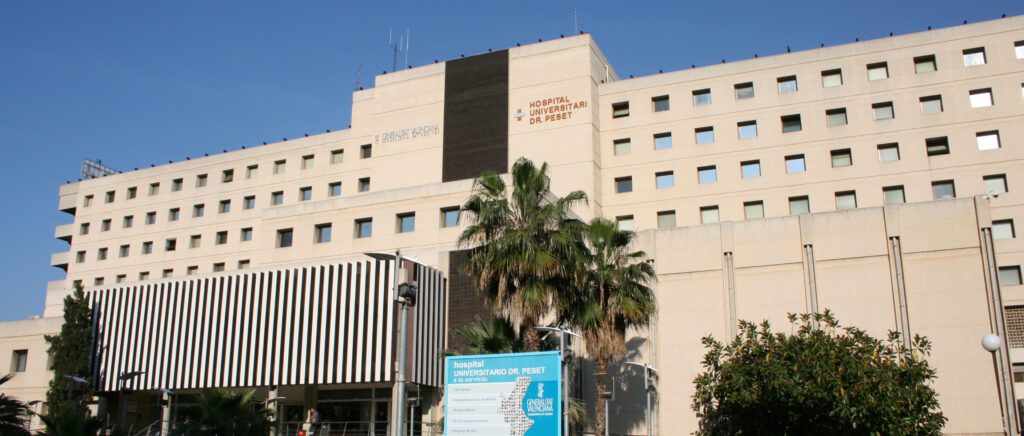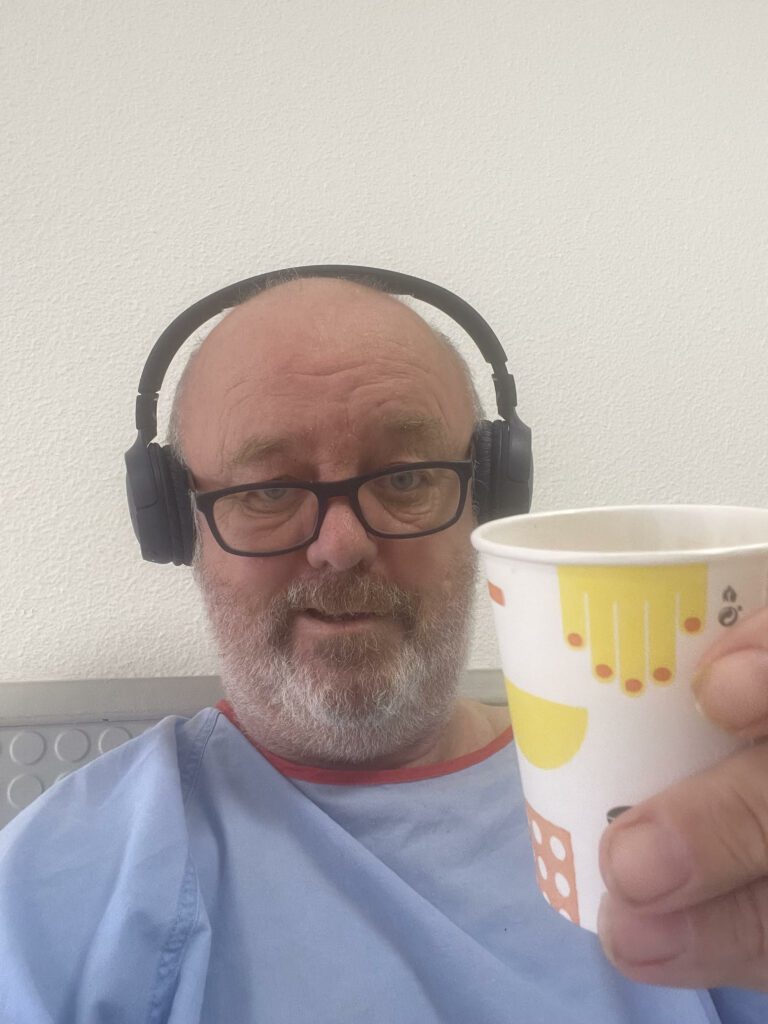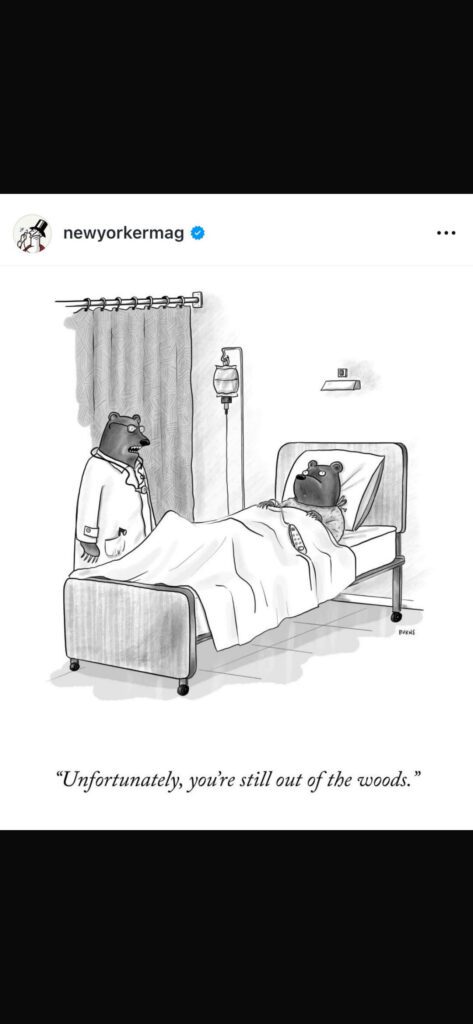A recent run of bad luck healthwise saw Eugene Costello admitted to hospital with some serious issues. He couldn’t be in better hands, he says, in a love letter to Spanish public health…
There is a British show called Car SOS starring Tim Shaw and master mechanic Fuzz Townshend. The premise is that they find classic and vintage cars needing some tender loving care. They then restore them to their former glory. On one episode, they found a 1934 Singer Le Mans coupé. It had languished in a barn since its last outing in 1998 for a wedding. They did a sterling job before unveiling it to the delighted, emotional owner at Duxford Airfield. It’s part of the Imperial War Museum and crammed with vintage flying machines.
I know how that Singer felt. Earlier this year I was experiencing an abnormal amount of dizziness, headaches and a complete lack of energy. I took myself to Urgencias at Doctor Peset, the public hospital in Patraix. It’s not far from my neighbourhood of Ruzafa in Valencia. They ran plenty of tests and I spent three days there. It seemed I had dangerously high blood pressure, among other things, more than 200/130.
And so it began…
I then received a phone call with notification of an appointment with a consultant at nefrologia, the renal department. I understood this to be for a Wednesday, or so I noted in my Google Calendar. The day before, I received a call from the consultant. It’s something that I do not think would happen in the UK. She asked why I had not attended my appointment that day. I explained that I had it in my diary for the following day. She said, OK, come tomorrow and we shall fit you in. Again, I think in the UK if you miss an appointment with a consultant, you would likely wait months for a replacement date.
She was very concerned both about my blood pressure and the results of blood tests they had done. She told me that I was suffering significantly from one of a range of kidney disorders. They’re grouped under the term glomerulonefritis. It’s a disorder that attacks the lining and filtering part of your kidneys, leaking protein into your blood and urine. (The tiny filters in your kidneys are glomeruli, hence the name.)
She asked if I had known. I confessed that I had seen a consultant in the UK who diagnosed this some 20 years ago. But nothing had come of it. She expressed astonishment that this would happen. The Spanish healthcare system in my experience is really comprehensive. They run tests for all kinds of things when you go to a public hospital, or at least they did in my case.
Tests, tests and more tests
She instructed me to purchase a machine for taking my blood pressure, and sent me to my local Centro de Salud for blood and urine tests several times, and instructed me to see my doctor there.
A few weeks ago, I contracted Norovirus. This led to a fortnight of being unable to eat and with very bad diarrhoea and occasional vomiting. My consultant rang me and I told her what I was going though. She was concerned given my underlying kidney problem and urged me to get to the Centro de Salud for tests.
One Wednesday, a month ago, she rang me and asked if I had seen the doctor or done the tests because she could see no results on my medical card. I explained that I had not because the following day was a festivo but I would the week after. She said, no, come to Urgencias for tests today. I demurred, saying I had to look after my dog. She said, “Oh, is your dog at risk of having to go on dialysis?” I said, no, of course not.
She replied, “Well, you are so get yourself down here.”
I managed to arrange for a friend to look after my dog and went. It was the usual round of blood, urine and blood pressure tests. The next thing, a porter arrived with a wheelchair and took me to the observation room. There, I transferred to a wheeled hospital bed and my clothes taken and put into a brown paper bag.

My wonderful consultant arrived to check on me. She told me they were keeping me in because my kidney function was abnormally low, and my blood pressure abnormally high. I was wheeled up to a ward and put into a room shared with only one other patient and with an en suite bathroom. Impressive. Before I knew it, nurses were trying to find veins in order to hook me up to drips of saline and antibiotics.
Train in vein
We had dreadful problems with this. It turns out that my veins are “finitas y escondidas” (very thin and sunken), a daily issue during what ended up a two-week stay. On one darkly amusing morning, a nurse came and started to wheel me out into the corridor and towards the lifts. I asked where we were going and she replied, “Dialisis”. You can imagine my shock.
Then another nurse came running after us, saying, “Cambio de plan” (change of plan) and I was wheeled back to my room. When the doctor came for her usual daily round, I recounted the story and she couldn’t help laughing. She explained that the nurses in the dialysis department are well-known for being experts at finding veins thanks to their experience and that was all it was. A huge relief.
Following attempts to find veins in one arm, I ended up with two swollen, very painful areas. I was sent to ecografia for a scan and they confirmed that these were trombos or blood clots. They wheeled me down to UCI (the ICU) where they inserted a deep vein “cateter” in my upper arm to make the absorption of my drips easier. I have to say, this had limited success, presumably for the same reasons. The flow was sluggish and lazy.
I can’t see clearly now
I mentioned to one doctor that my sight seemed to have become cloudy, and that also I had a loose and very painful molar.
Again, porters appeared twice to wheel me off to to other departments, first oftalmologia where a consultant did numerous eye tests involving lights and chin rests. She told me that I had macular degeneration, a worsening of vision that is sadly irreversible, and made an appointment for me to return this week.

And another took me to odontologia, where a doctor confirmed that I needed an extraction but that she would need consent from my kidney consultant. She was worried that I am now on heparin among my various medications, and it could cause a conflict with the anaesthetic. All of this is covered under my SIP card (automatic with your NIE/TIE, an identity card that confirms that one has legal residency and is also tax-resident in Spain), which is incredible. She also referred me to a specialist clinic in Monteolivete for treatment for plaque. They rang this week and I am going next week.
What does the future hold?
I was finally allowed out of hospital last Monday because they said my test results had improved marginally. I left with my belongings in brown paper bags, feeling somewhat like a prisoner who had been released…

Yesterday, I saw another kidney consultant. I did the full range of tests and she seemed moderately pleased with the results. Another wonderful, kind woman. She told me that in her view I should avoid dialysis since it is “horrible” and we would instead go down the route of a biopsy and transplant. The good news, she said, was that because I have a rare blood type there is no waiting list for a kidney. And she told me that it was good fortune that this had all come out in Spain “because here we take good care of our patients”.
So now time will tell. I feel positive and in exceptionally good hands. So much so that I arranged for two gift baskets of fancy chocolates (one for the doctors, one for the nurses) to be delivered yesterday.
Before I left, I confided in her that the whole episode had been something of a shock and she told me that I was responding calmly and bravely. I also apologised for my Spanish. She said, “Que va? Un acento extranjero es señal de valentia.”
No way! A foreign accent is a sign of bravery.
What wonderful people there are in Spanish public health…